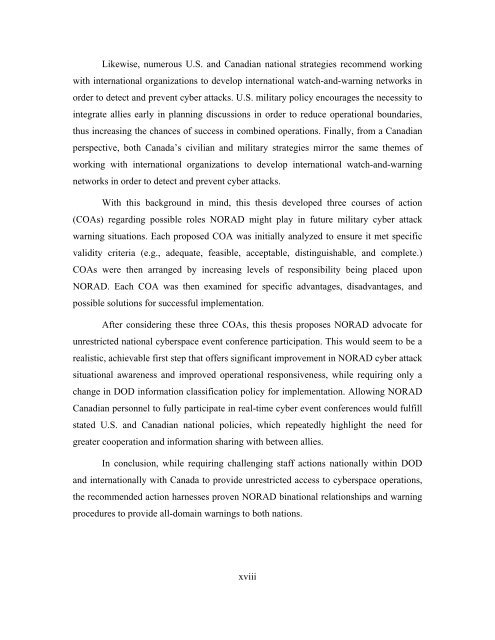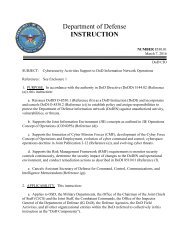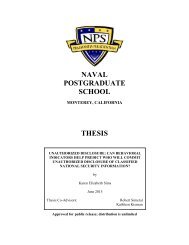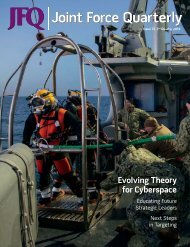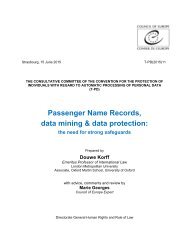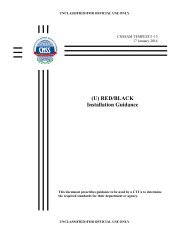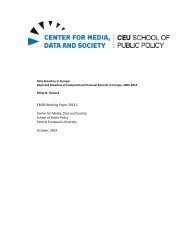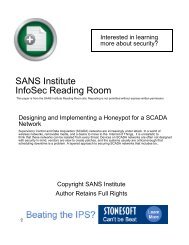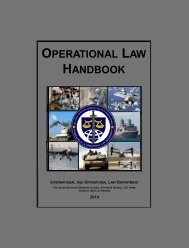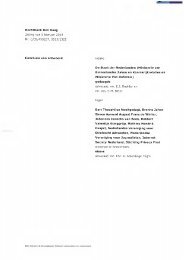SCHOOL THESIS
?view&did=788526
?view&did=788526
You also want an ePaper? Increase the reach of your titles
YUMPU automatically turns print PDFs into web optimized ePapers that Google loves.
Likewise, numerous U.S. and Canadian national strategies recommend working<br />
with international organizations to develop international watch-and-warning networks in<br />
order to detect and prevent cyber attacks. U.S. military policy encourages the necessity to<br />
integrate allies early in planning discussions in order to reduce operational boundaries,<br />
thus increasing the chances of success in combined operations. Finally, from a Canadian<br />
perspective, both Canada’s civilian and military strategies mirror the same themes of<br />
working with international organizations to develop international watch-and-warning<br />
networks in order to detect and prevent cyber attacks.<br />
With this background in mind, this thesis developed three courses of action<br />
(COAs) regarding possible roles NORAD might play in future military cyber attack<br />
warning situations. Each proposed COA was initially analyzed to ensure it met specific<br />
validity criteria (e.g., adequate, feasible, acceptable, distinguishable, and complete.)<br />
COAs were then arranged by increasing levels of responsibility being placed upon<br />
NORAD. Each COA was then examined for specific advantages, disadvantages, and<br />
possible solutions for successful implementation.<br />
After considering these three COAs, this thesis proposes NORAD advocate for<br />
unrestricted national cyberspace event conference participation. This would seem to be a<br />
realistic, achievable first step that offers significant improvement in NORAD cyber attack<br />
situational awareness and improved operational responsiveness, while requiring only a<br />
change in DOD information classification policy for implementation. Allowing NORAD<br />
Canadian personnel to fully participate in real-time cyber event conferences would fulfill<br />
stated U.S. and Canadian national policies, which repeatedly highlight the need for<br />
greater cooperation and information sharing with between allies.<br />
In conclusion, while requiring challenging staff actions nationally within DOD<br />
and internationally with Canada to provide unrestricted access to cyberspace operations,<br />
the recommended action harnesses proven NORAD binational relationships and warning<br />
procedures to provide all-domain warnings to both nations.<br />
xviii


